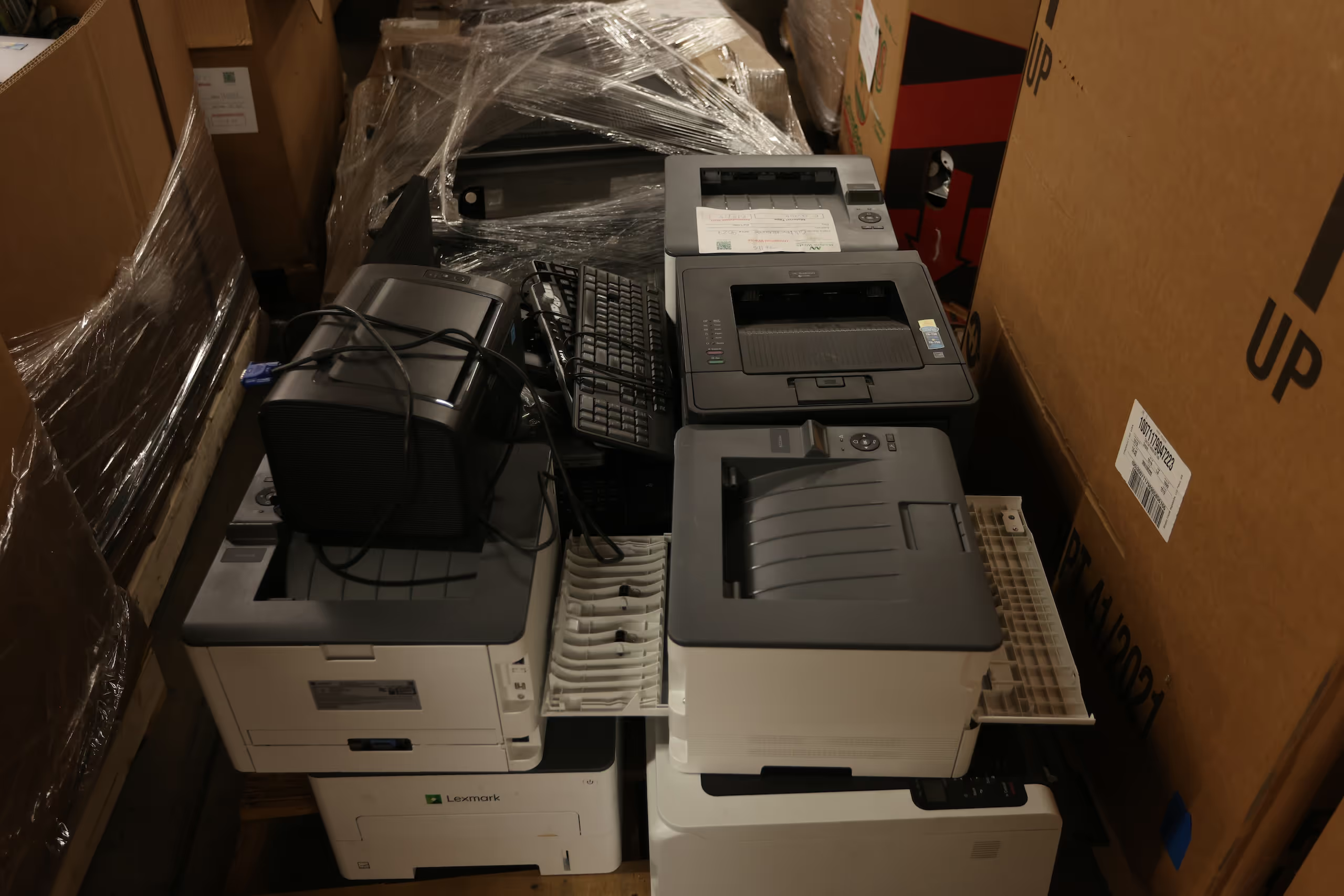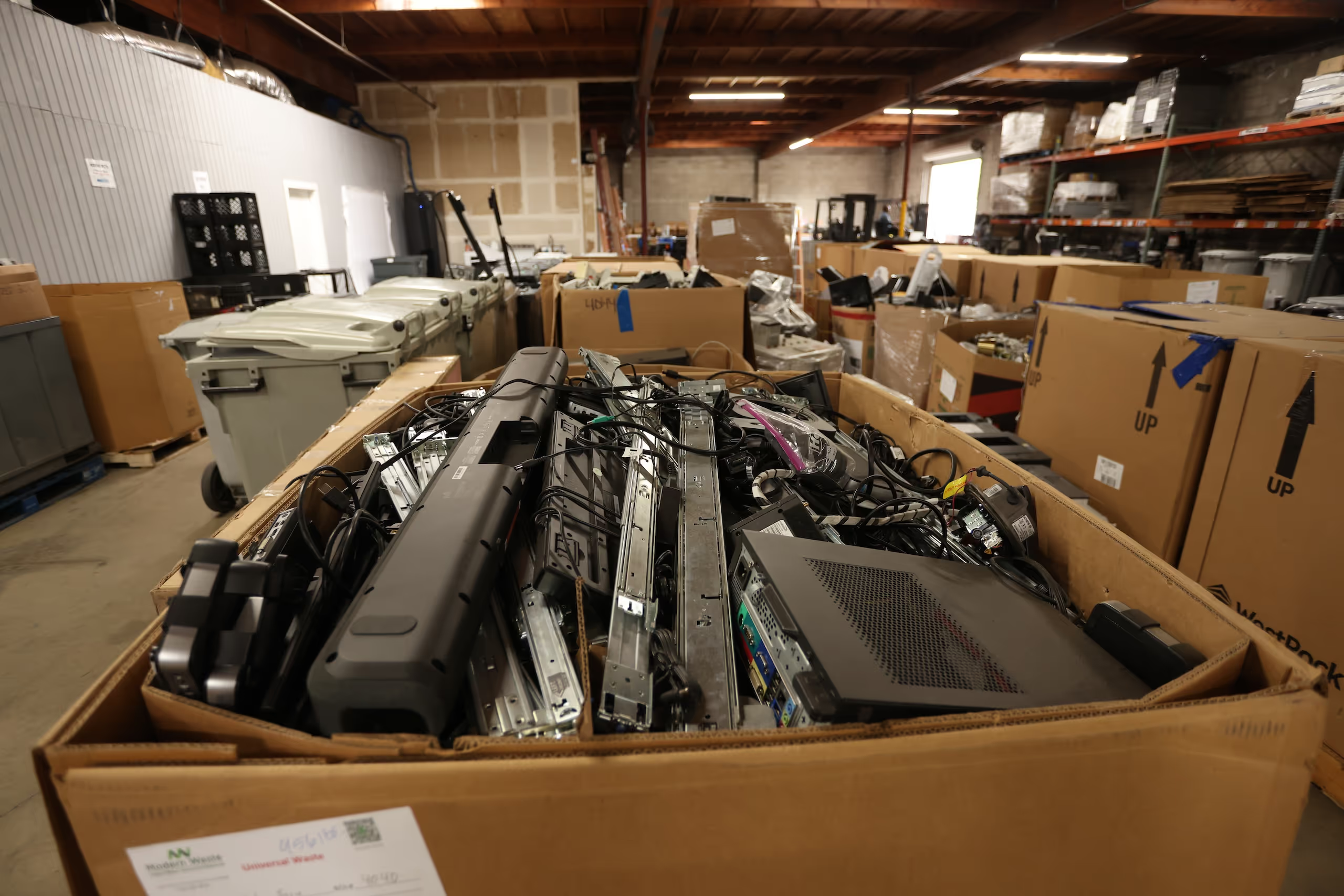The R2 (Responsible Recycling) certification is the leading global standard for the electronics recycling industry, managed by Sustainable Electronics Recycling International (SERI). The most recent version — R2v3 — sets the most stringent environmental, data security, and legal compliance requirements for the recycling and reuse of electronics.
As an R2v3 certified recycler, Modern Waste Solutions follows strict processes that ensure:
We maintain full visibility into the recycling chain, ensuring that no materials are exported illegally, improperly landfilled, or handled by unapproved facilities.
Government agencies, corporations, schools, and healthcare providers rely on Modern Waste Solutions to securely recycle sensitive electronic equipment while maintaining full compliance with environmental regulations and data privacy laws.
Certification Body: Sustainable Electronics Recycling International (SERI)
Standard: R2v3 (Responsible Recycling Version 3)
ISO 14001 is the global standard for Environmental Management Systems (EMS). This certification guides companies in systematically reducing environmental impacts, complying with regulatory obligations, and implementing sustainable business practices.
As a leading e-waste and battery recycling provider, Modern Waste Solutions takes environmental responsibility seriously. ISO 14001 certification ensures that every aspect of our business — from material handling, processing, transportation, downstream vendor management, and disposal — aligns with environmentally sound principles.
Our ISO 14001 environmental management system:
With increasing regulatory pressure on companies to maintain responsible disposal practices, partnering with an ISO 14001-certified recycler ensures that all waste is handled in compliance with federal, state, and local environmental regulations.
Certification Body: AMTIVO Certification Limited
Standard: ISO 14001:2015 Environmental Management Systems
ISO 9001 is the world’s most widely recognized standard for Quality Management Systems (QMS). This standard provides a framework for organizations to deliver consistent, high-quality products and services while continually improving internal processes and customer satisfaction.
Modern Waste Solutions adheres to strict quality management protocols that control every step of our recycling and waste processing services. From the moment materials are collected, through secure transportation, processing, and final disposition — every stage follows documented procedures designed to ensure accuracy, consistency, and compliance.
ISO 9001 certification enables us to:
Clients can trust that Modern Waste Solutions provides dependable, repeatable recycling services that meet or exceed regulatory requirements, corporate standards, and internal audit needs.
Certification Body: AMTIVO Certification Limited
Standard: ISO 9001:2015 Quality Management Systems
ISO 45001 is the internationally recognized standard for Occupational Health and Safety Management Systems (OHSMS). It was developed to help organizations improve employee safety, reduce workplace risks, and create better, safer working conditions. This standard replaces earlier occupational health and safety standards such as OHSAS 18001 and integrates seamlessly with other ISO management systems.
At Modern Waste Solutions, the safety of our employees, partners, and clients is paramount. Achieving ISO 45001 certification demonstrates our ongoing commitment to managing occupational risks proactively. Through detailed hazard assessments, safety audits, employee training, and continuous improvement processes, we ensure that all waste recycling operations — including the handling of electronic waste, batteries, and hazardous materials — are performed under strict safety protocols.
Our compliance with ISO 45001 helps:
Many of our clients, including government entities, school districts, healthcare organizations, and corporate enterprises, require vendors that meet high safety standards. ISO 45001 provides confidence that Modern Waste Solutions operates responsibly while managing hazardous and regulated waste streams.
Certification Body: AMTIVO Certification Limited
Standard: ISO 45001:2018 Occupational Health and Safety Management










